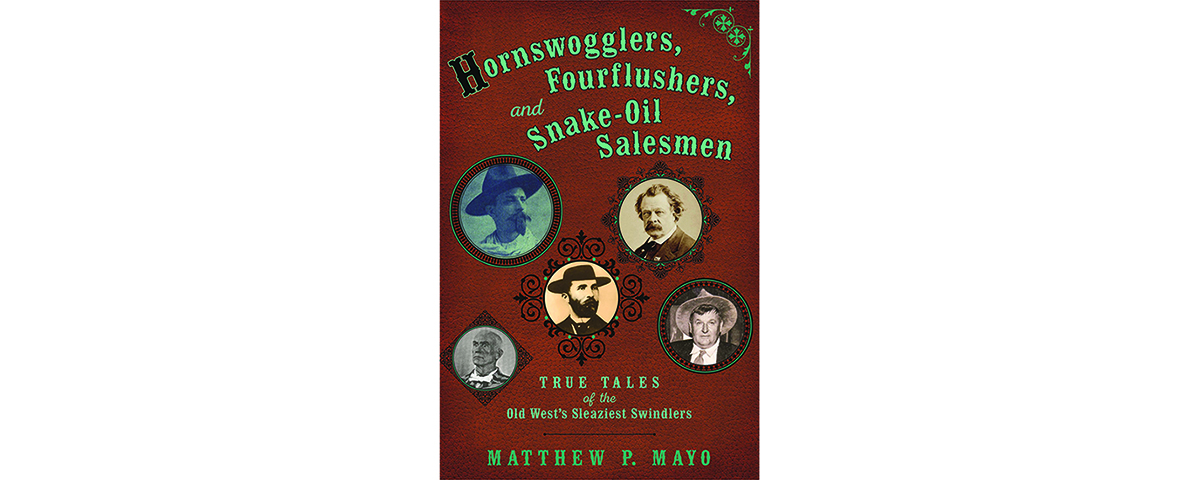Hornswogglers, Fourflushers & Snake-Oil Salesmen: True Tales of the Old West’s Sleaziest Swindlers, by Matthew P. Mayo, TwoDot, Guilford, Conn., and Helena, Mont., 2015, $18.95
Crime was rampant in the Old West, but not every felon earned his ill-gotten gains with a gun. A parallel faction of silver-tongued devils relieved people of their valuables with words, woven into elaborate cons and out-and-out lies. In his latest book Matthew Mayo examines such agile-brained flimflam artists and the fascination they still hold over frontier scholars.
It might be argued the “best” swindlers (in strictly relative terms, of course) are those believers in the W.C. Fields maxim “You can’t cheat an honest man.” That is to say, their elaborate traps, often involving accomplices and temporary fronts, draw in marks who themselves expect disproportionate gain for relatively little investment, an expectation that seems (and, of course, is) too good to be true. Such nefarious activities eventually conferred mythic status on such infamous bunco artists as Jefferson “Soapy” Smith and Doc Baggs. The career of Edward Zane Carroll Judson—who under the nom de plume Ned Buntline made a fortune writing highly embellished (if not downright fictional) biographies of legendary frontier heroes—itself featured enough adventurous twists and turns to have made a good Buntline story. For aficionados of the criminal genre, however, the accounts of lesser-known con men (and women) may hold more fascination.
That said, readers might find certain miscreants more disturbing than distracting. Al Swearengen, for instance, lured countless young would-be actresses to ruin in the sleazy dives of Deadwood, Dakota Territory. Mayo even reserves a chapter for the U.S. government, which broke virtually all of its promises to American Indians, save its promise to take their land. The profiles are entertaining, but caveat emptor: The dialogue that colors many of the narratives may be too good to be true—and as the conversations lack footnotes, the reader is left to take a leap of faith as to their authenticity. That would be a lot easier to do were it not for the book’s subject.
—Jon Guttman





